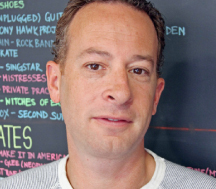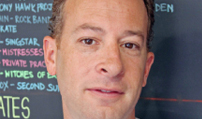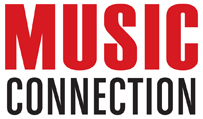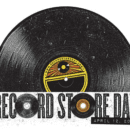
Justin Shukat • President • Primary Wave Music Publishing
BACKGROUND: With an entertainment attorney/manager for a father, Justin Shukat’s interest in the music business was piqued early. Touring with Miles Davis as a teenager expanded his curiosity even more. Upon graduating from Syracuse University, he worked at the Montreaux Jazz Festival. Back in the states, he served at Walter Yetnikoff’s Velvel Records where he was a marketing product manager. Years later, he founded Primary Wave with Larry Mestel, sparked by the opportunity to purchase the Kurt Cobain catalog. Seven years later, Primary Wave dominates as a music publishing, marketing and talent management company.
Attaining Nirvana:
The opportunity to build a company around Nirvana copyrights was very intriguing to me. I was tasked with putting together a marketing plan that we could present to Courtney Love and her handlers. I believe there were five or six folks who were looking to buy [the catalog]. What struck a chord with me was they said we were the only company that came in with a physical marketing plan and timeline of how we would roll out and exploit those assets. It was very telling.
Branching Out:
Within February of ‘06, we acquired the entire Cobain estate and a large portion of the MGM library. I’m president of the publishing company, but I’m also general manager of our overall company. We’ve transformed as a company. Initially, we were a catalog acquisition business. When we proved we had something special, we slowly moved into being more of a full-service music publisher. Not only were we doing catalogs, we were doing contemporary artists and working with writer/producers. We launched a digital marketing agency. We partnered with a brand marketing company. We’re a full-functioning management company. And we have a TV production division.
The Open Office:
We set up our infrastructure in New York as an open work layout. We feel like an Internet start-up. That culture is something I was passionate about when we moved in. As a young executive in the industry, closed-door meetings always frustrated me. The senior executives were so out of touch. Having an open work environment, people have a sense of what’s going on. There’s never the frustration of, “Oh my God, what’s going on in that meeting?” If you want to take a private call, we have conference rooms you can step into. But so many times things come up and as soon as I’ve talked about it someone in the office will come over and say, “Hey, I’m friendly with this person. Can I help connect?” It’s one of the things that have separated us from other companies, because it’s forced us to work hand-in-hand with each other.
The Star Factor:
One of our guys heard that CeeLo was frustrated with his current manager, that the label wasn’t taking the track “Fuck You” seriously and he was looking to have a team step in. That was a huge moment for us as a company, because that song became a viral smash and when The Voice happened it was game changing. We went from a guy who had a couple hit records to a guy who had one of the biggest, most impactful viral records to date, to stepping into one of the biggest TV shows. It really has helped us leverage our brand and digital business exponentially.
The Right Songwriter:
There’s no one type of genre we’re looking for; I’m looking for someone who writes great songs. I’m looking for a connection with someone I believe has a work ethic. I also look for people who have teams around them. Of course, if I found an incredible songwriter and that person has never engaged in the music business, I’m not going to walk away. I love artists who can write for themselves but also others. We’ll look at bands as well.
Singles Game:
If a song is just a pure album cut, there’s not much money in that right now, so we’re really talking about singles. We are more focused on writers who are going to write tracks for pop radio, urban radio, rhythm radio. I’ll look at singer/songwriters as well from a synch perspective. When I listen to songs, I’m looking for songs that will touch people. I’m not looking for guys who are trying to mimic other people.
Evolution of a Songwriter:
The first songwriter I signed at Primary was a girl named L.P. She is the quintessential type of songwriter I’m looking for. I’m attracted to songwriters who are also artists. Why? You’re giving yourself more opportunities to monetize a deal. I knew she had artist aspirations, although she was at a point in her career where she didn’t see how she fit. We focused for almost two and a half to three years on conditioning her as a top-tier songwriter. The culmination was when we landed a Rihanna single, the song “Cheers (I’ll Drink To That).” From there, we put hit song after song on the board.
Last year, someone pitched me a placement in a commercial. We closed this deal and it was probably the most impactful ad Citibank has ever put on the air. These are their words. L.P. was subsequently signed to Warner Brothers Records and there should be an album out next year.
Targeted Deals:
So many contracts, at least on the artist side, have been crafted in a way to lock creative in for as long as possible. I’m more comfortable doing deals with an artist for one album with two options. We’ve done plenty of deals with MDRCs, minimum delivery requirements. I’ve also done term deals, potentially with rolling advances. I like to sit down with the writer or artist and see their needs, because at the end of the day it’s a needs-based business. I always know there’s a major lurking around the corner that could spend more money than me or give better terms. But what they can’t do is service the client as best we can, because they’ve amassed such large catalogs that it shuts them down from being able to operate as fast and flexibly as we can.
Universal Licensing:
I’d love to see a universal licensing system. That’s probably a big ask, but it’s always the last thing to get cleared. They can work on a TV show or film for years and two weeks before they wrap they’re calling the music guys. And there are so many rights holders that it becomes very difficult to deliver in such a short period of time. If there were a universal licensing system, we’d be in a lot better shape.
Connecting:
People think that email is a form of communication that moves the needle. It rarely works. You have to make a personal connection. You’ve got to work your networks. Reach out to A&Rs, go to shows, be at conferences. You have to start connecting, one person at a time. It’s a very small industry.
Grow First:
Everyone says, “I need a manager.” What do you need a manager for if there’s nothing to manage? Work your local scene, your local radio station, your local promoters and work up. People think too big, too fast. Let it nurture in your hometown and then spread from there. And if someone starts taking notice, speak with a lawyer.
Do Your Homework:
There’s something to be said for doing your homework and knowing the players. The blind emails I respond to are the ones where people have done their homework. They’ve looked at our artists. They’ve referenced a recent sync. I know that’s not much, but that person went that extra step. Take the extra step that the person next to you is not willing to do. If you do that, it always shows.
By Andy Kaufmann











